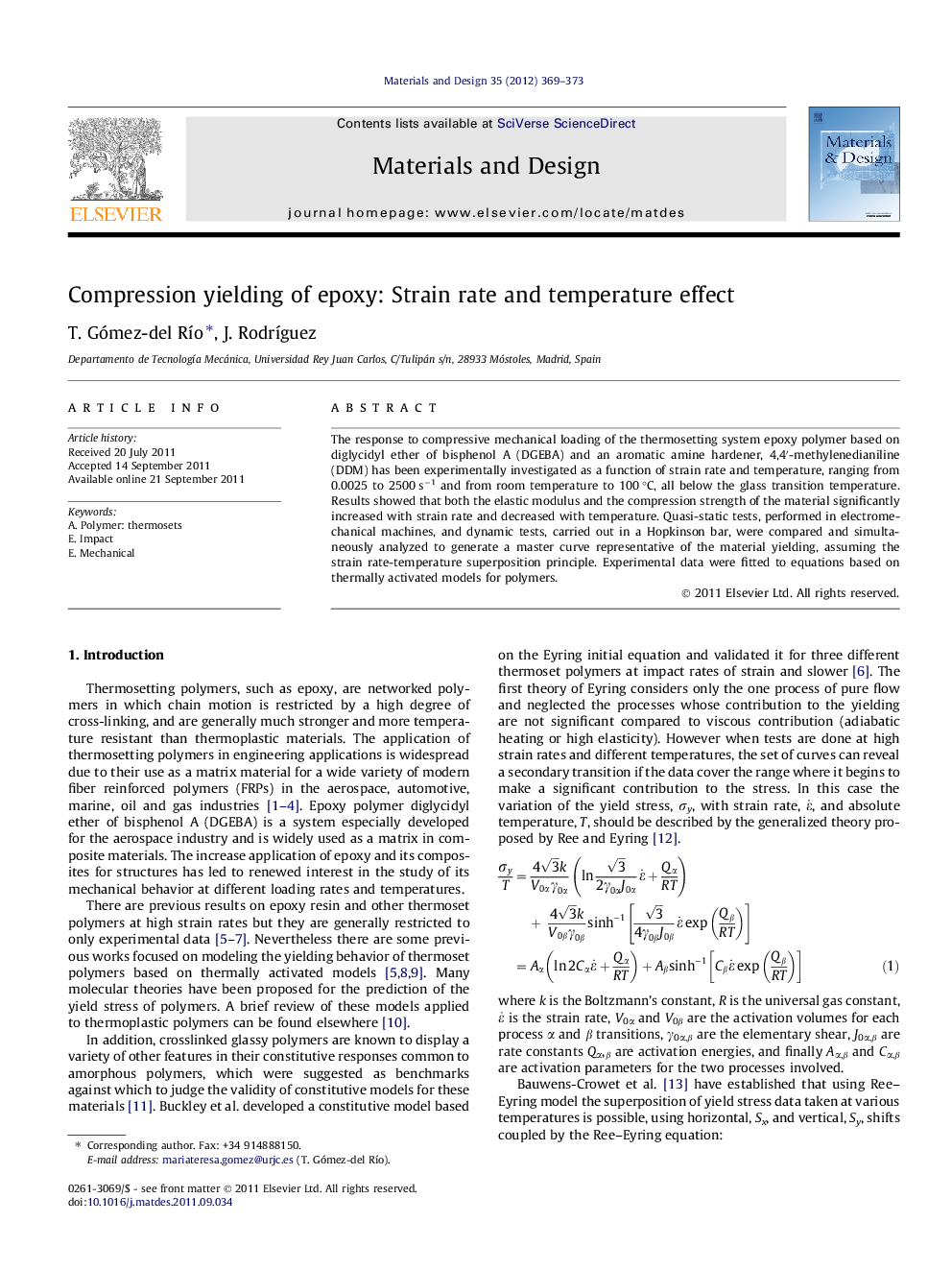| Article ID | Journal | Published Year | Pages | File Type |
|---|---|---|---|---|
| 830953 | Materials & Design (1980-2015) | 2012 | 5 Pages |
The response to compressive mechanical loading of the thermosetting system epoxy polymer based on diglycidyl ether of bisphenol A (DGEBA) and an aromatic amine hardener, 4,4′-methylenedianiline (DDM) has been experimentally investigated as a function of strain rate and temperature, ranging from 0.0025 to 2500 s−1 and from room temperature to 100 °C, all below the glass transition temperature. Results showed that both the elastic modulus and the compression strength of the material significantly increased with strain rate and decreased with temperature. Quasi-static tests, performed in electromechanical machines, and dynamic tests, carried out in a Hopkinson bar, were compared and simultaneously analyzed to generate a master curve representative of the material yielding, assuming the strain rate-temperature superposition principle. Experimental data were fitted to equations based on thermally activated models for polymers.
► Compressive yield stress at high strain rates is much higher than at quasi-static. ► Increasing the strain rate up to 2200 s−1 increased 2–3 times the yield stress. ► The strain rate-temperature superposition principle can be applied to epoxy resins. ► The Eyring linear model for yield stress can only be applied at low strain rates. ► Equations based on the cooperative model have been used to fit experimental data.
